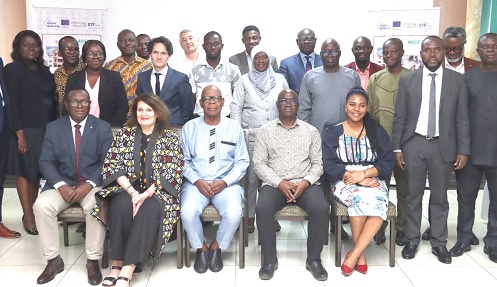
Harmonisation of educational qualifications in the offing
Three comprehensive national policy documents are to be developed to harmonise educational qualifications in the country.
They are the national qualification framework for all levels and sub-sectors of education and training; the recognition of prior learning (RPL) for mainly the informal sector, and the credit accumulation and transfer (CAT) system mainly for students.
The documents are to facilitate international recognition of qualifications by educational institutions and companies, enhance job mobility, access to decent jobs, quality assurance and standards.
It would also ensure coherence and career progression, both within and outside the country.
Tertiary level students would also be able to transfer their credit hours from one institution to the other within and outside the country to enable them to continue their education.
Event
This was announced at a five-day workshop organised by the Ghana Tertiary Education Commission (GTEC), co-organised by the African Continental Qualifications Framework (ACQF-II).
The ACQF-II is a project of the African-European Union partnership, implemented by the European Training Foundation, in collaboration with countries, regions and the African Union Commission.
The Education Regulatory Bodies Act 1023 of 2020, Section 8(4a) mandates GTEC to collaborate with relevant regulatory bodies and institutions to develop and implement a comprehensive national qualification framework and a national learners qualifications framework for the tertiary level.
Participants were drawn from GTEC, Ministries of Education, Employment and Labour Relations, the Commission for Technical and Vocational Education and Training (C-TVET), the Ghana Education Service (GES) and the West African Examinations Council (WAEC).
Others were the National Council for Curriculum and Assessment, the National Union of Ghana Students (NUGS), the Conference of Principals of Colleges of Education (PRINCOF), Vice-Chancellors of Ghana, Vice-Chancellors of Technical Universities of Ghana (VCTU-G), and the Council of Independent Universities (CIU).
The rest are from the Association of Ghana Industries (AGI), the Association of Professional Bodies and the Attorney-General's Department.
Overview
The coordinator of ACQF-II, Eduarda Castel-Branco, gave an overview of the project, its concept, principles and the stage of the three policy documents being developed.
She said the first part of the project started in 2020, and ended in 2022, while the second part which had started will end in 2026.
“These policy documents would enhance inclusion and recognise people who have a lot of experience in different professions and work.
“It would also ensure visibility of skills, knowledge and competencies, while enhancing competitiveness among countries,” Ms Castel-Branco added.
She further said the first draft policy document was expected to be ready by June this year, and the second draft by October, while the final draft would be by close of this year.
Ms Castel-Branco said it was necessary to transform the policy documents into legal Acts after approval and implementation.
Upon approval, she said the policies must be implemented; however, she added that a best policy document would not be relevant if it was not supported with budgetary allocation, human capacity and the government.
Unaccredited institutions
The Board Chairman of GTEC, Kwame Boafo-Arthur, expressed concern about the proliferation of unaccredited educational institutions.
He said such institutions were churning out mediocre professionals, but said with the implementation of the policy documents, such practices could be addressed.
